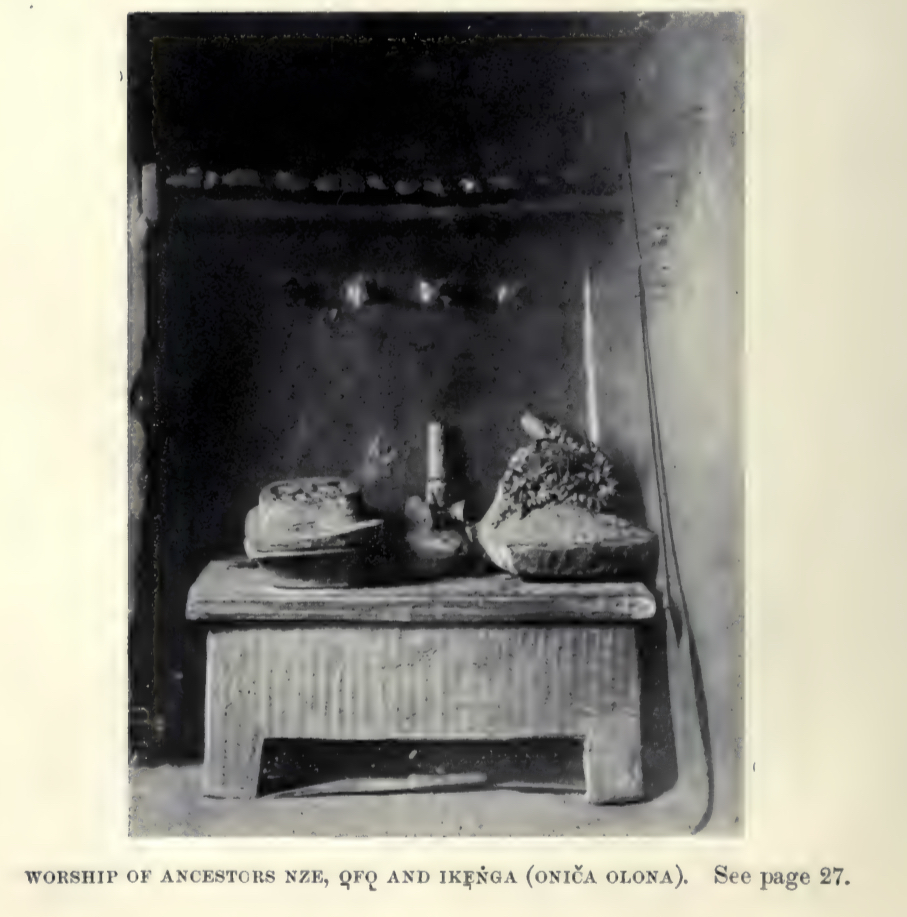Every group in Igbo society has its own Ofo. The Family Ofo is different from the village Ofo, and the village Ofo also differs from the Ofo of many villages joined together. It is the Okpara (first son) who holds the family Ofo. That is why he leads the religious and political matters in the family.

Ofo is a very powerful symbol in Igbo religion. It is not just a staff of authority; it also means of connection with God and humans, the dead and the living, and the ones who have not been born. It represents justice, righteousness, and truth.
Ogu, on the other hand, means innocence. If a person wants to prove his or her innocence, Ogu is called upon. That is why they said that Ofo and Ogu work hand in hand. If you carry the Ofo, you should also carry the Ogu. When finding justice in Igbo tradition, your hand is supposed to be clean.

Photograph by G. I. Jones in the 1930s.
In Igbo traditional religion, they have beliefs that can join both monotheism and pantheism. They believed there is a Supreme God, Chukwu, and still believed they had other small gods and spirits.
1. Chukwu, the main God, is present
2. Minor gods that relate to nature are present
3. Good and bad spirits are present
4. Reincarnation is present
5. Life after death is present
6. Good that brings reward, bad that brings punishment
These beliefs guided the Igbo people in their lives. They still believed that if a person followed the good road, he or she would see good things and escape danger. From this belief, they built the cultural idea called the Ofo na Ogu.

In Igbo land, they have different types of Ofo:
• Ofo dibia – is a dibia (native doctor) who holds it
• Ofo Isi-Opara – is the first son or oldest man in the family who holds it
• Oke-Ofo – is the one that the oldest man in the kindred or community uses for big issues.
Not all Ofo have the same level. They divided the Ofo into two:
• Ancestral Ofo, which is passed from generation to generation
• Individual Ofo – A man would get it once he is mature.

A Person who holds the Ofo seriously would pray daily and put the Ofo on the floor when praying. Even though the Ofo is mostly seen on the male hands, women have what they use that resembles the Ofo; they call it umune. If a woman is a dibia, she can get the same kind of Ofo-dibia that the male dibia uses.
They still have a tree that produces the Ofo seed, from which they get the real Ofo stick. Ofo and Omenana (Igbo tradition) are on the same level. It is like a natural religion. As Umeh said, the Sacred Ofo of Ekwo, which they said God gave first to Nri, is what they use to cleanse any abomination in Igbo culture.
References
-
Ekwunife, Anthony Nnamdi O. A. A Consecration in Igbo Traditional Religion. Nsukka: Jet Publishers, 1990.
-
Njaka, Elechukwu N. Igbo Political Culture. Evanston, IL: Northwestern University Press, 1974.
-
Asigbo, Alex Chinwuba, and Kelechi Stellamaris Ogbonna. “Theatre and Cultural Education as Panacea for Nigeria’s Fractured Peace: Ofo na Ogu as Paradigm.



